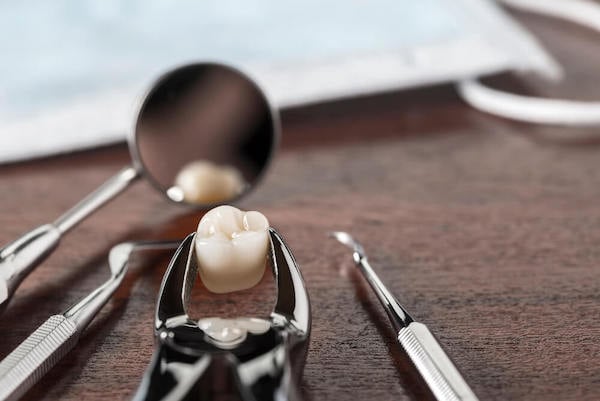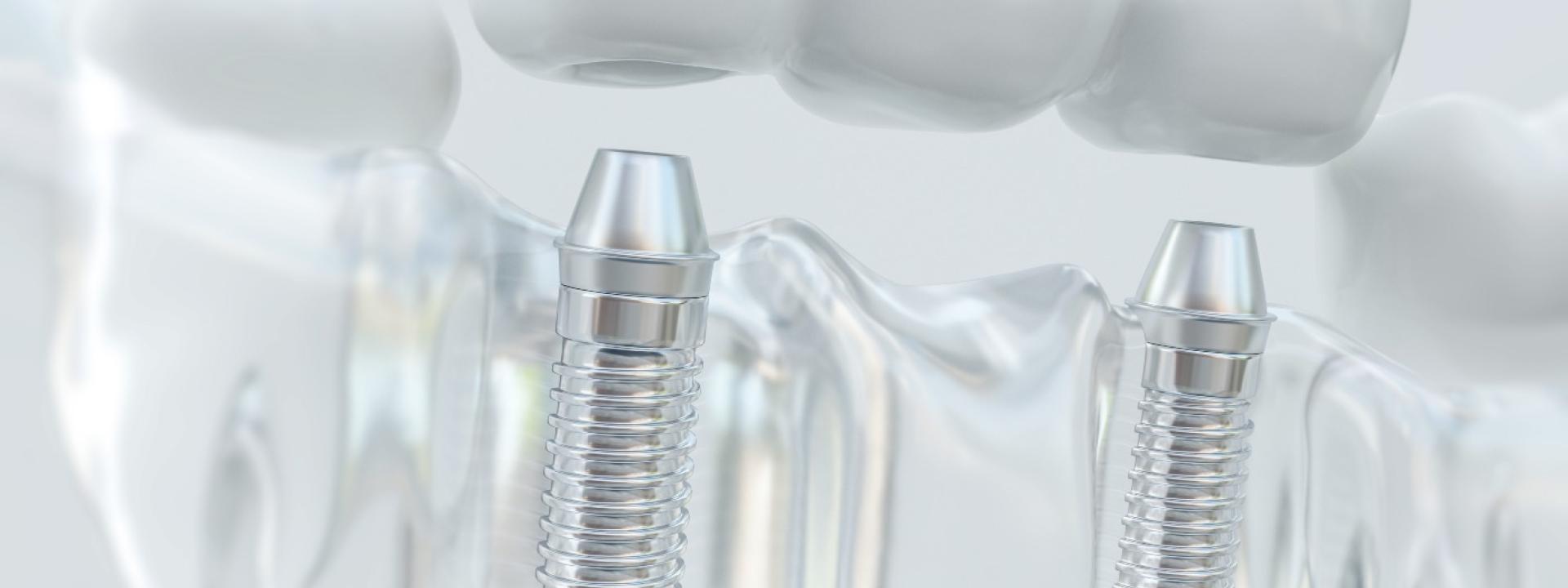
When Are Tooth Extractions Necessary?
Tooth extractions may be needed to remove teeth that have been damaged by gum disease, tooth infections, or dental trauma. They're also sometimes necessary to prepare for certain orthodontic treatments, or for restorative treatments like dentures or dental implants.
Tooth extractions are always our last resort at SOLA Dental. Saving your natural tooth is always the best option, so Dr. Jacob Deniakos will only recommend tooth extractions if they're truly necessary. Contact us today to see if an extraction in Lafayette, LA is right for you.
Did You Know…
It’s estimated that about 20 million teeth are extracted each year in America, making this one of the most common dental procedures in the U.S.
Ready to schedule your appointment?
Our Tooth Extraction Process: What To Expect
Numbing, sedation, and prep
First, Dr. Deniakos will clean the treatment area and numb it to ensure you don’t feel any pain or discomfort. You can also be sedated for your comfort during your tooth extraction.
Basic extraction
In a basic extraction, Dr. Deniakos will use special tools to loosen the tooth in the socket. Then, when it’s loose enough, he will use a pair of dental forceps to pull it out of your mouth. He’ll clean and stitch the area, then repeat the process if you need other teeth to be removed.
Surgical extraction
Surgical extractions are necessary for impacted wisdom teeth, teeth that have broken near the gum line, and in a few other situations. In this procedure, Dr. Deniakos will make an opening in the gums. Then, he will cut the tooth into small pieces and remove it through this opening. Once the tooth has been removed, he will clean and suture the area to promote proper healing.
Healing and recovery
You’ll be sent home from our Lafayette office with a full set of recovery instructions. You can get back to your daily routine after just a day or two, but it can take two weeks or longer for your mouth to heal completely.
Types Of Extractions We Provide
Basic Extractions
Basic extractions are the simplest type of extraction, and are used to remove damaged teeth, or to extract teeth to prepare for another dental procedure, such as dental implants. If you think that you have one or more teeth that are damaged and require extraction, contact us for a consultation. We’ll help you explore your options, and Dr. Deniakos will determine if extraction is really necessary.
Wisdom Teeth Extractions
The wisdom teeth are the last set of molars, and they come in a lot later than the other teeth, usually between the ages of 17-25. Some people don’t have enough room in their mouths to accommodate another set of four molars. If this is the case, they're usually removed to prevent a higher risk of oral infections and other complications.
Impacted Wisdom Teeth Extractions
In some cases, wisdom teeth may become “impacted,” which means they have not fully emerged from the gums. Impacted wisdom teeth can cause lots of pain and discomfort, a higher risk of gum and tooth infections, and lots of other problems.
Surgical extractions are usually necessary to remove these teeth. Dr. Deniakos will make an incision in the gums near the tooth. Then, he will cut the tooth into small pieces using special dental tools, and remove each piece. Once the tooth has been fully extracted, he will clean and stitch the area to ensure that it heals properly.
Have Questions About Tooth Extractions? Find Answers Here.
What’s The Healing Process After An Extraction?
It takes about two weeks to fully heal after a tooth extraction at our Lafayette office. During the first few days, you’ll experience some pain, discomfort, and bleeding. You will need to eat a soft diet, and follow Dr. Deniakos’ instructions to make sure you heal properly. After about a week, your mouth will feel much better. You can usually start eating firmer foods and brushing the extraction site normally. You should not be feeling much pain. After two weeks, your extraction site may still feel slightly tender, but should be almost completely healed.
Should I Replace My Missing Teeth?
Yes. If you’ve had one or more of your teeth extracted, replacing them is the best way to keep your mouth healthy. Tooth replacements like dental implants and dental bridges help protect your oral health, restore your smile, and allow you to chew and speak normally after tooth loss.

